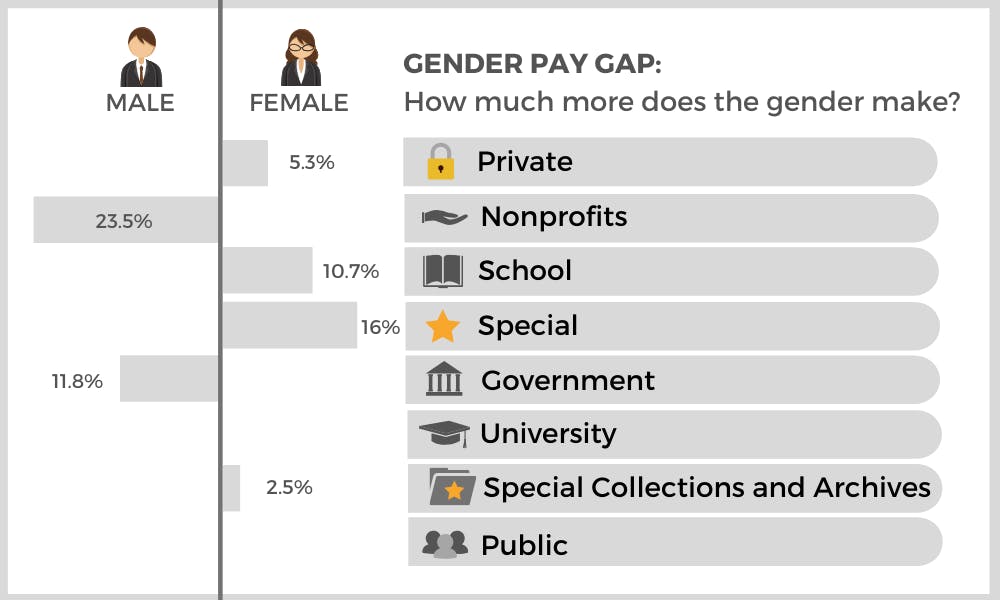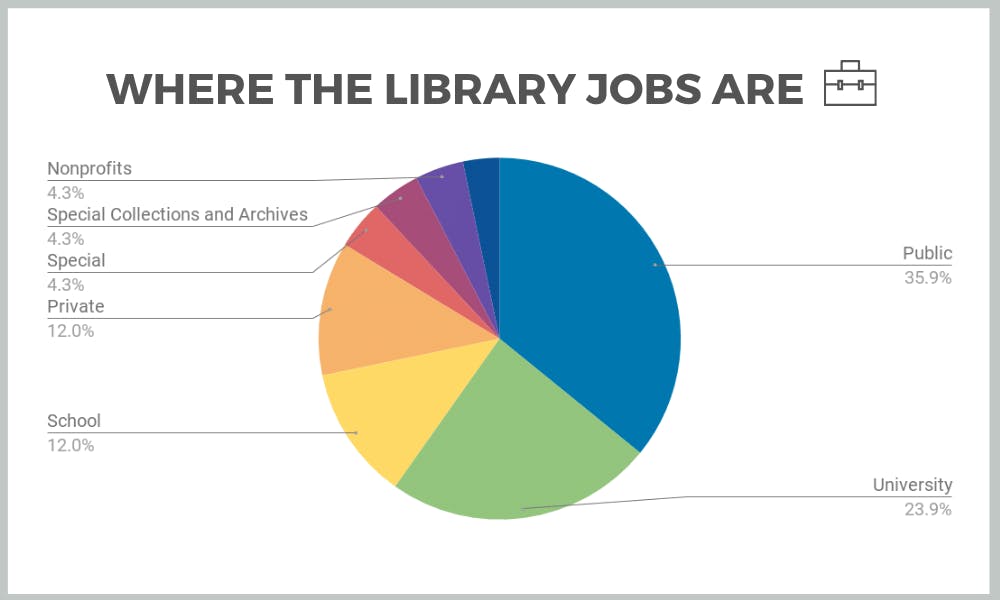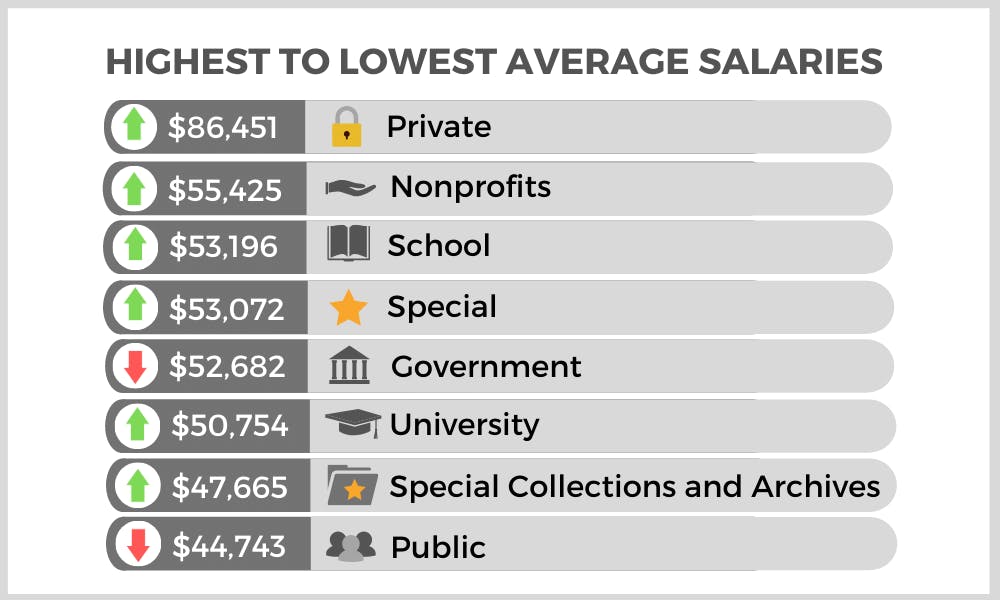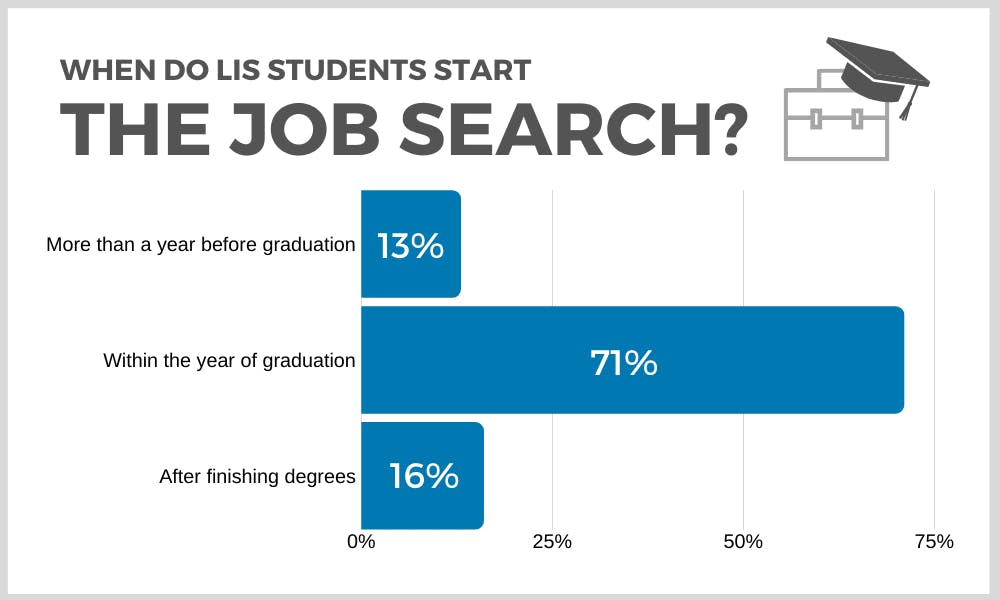
Librarians have been experiencing something of an existential crisis in the last decade or two, thanks to the rise of the internet and sophisticated search engines, eBooks, budget pressures and other trends.
But the past few years have been positive, and good news is on the horizon.
The Library Journal (LJ) has released its 2019 LIS Pipeline, Placements & Salaries report and salaries are up, while the gender pay gap is down. In addition, LIS candidates have numerous options for networking and identifying active opportunities. The report looks at grads entering the field from 41 ALA-accredited universities.
Complete survey results are available to LJ subscribers, but I’ll weigh in here with some of the highlights to help students, new grads and working librarians understand their options and make the right career moves.
Latest library salary information
As I mentioned already, library compensation is on the upswing, with librarians earning 6.2 percent more than they did last year and 24 percent more than 2011. According to the report, 2018 graduates who are salaried earn an average of $55,357 while those paid hourly earn an average of $19.76 per hour. Librarians that performed the best are working in the private sector or special collections.
Regarding the gender pay gap, it’s encouraging that the differential between a male graduate working full time versus a female graduate has dropped just under 10 percent (9.9 percent).

It’s important to note that these are averages that cross different types of libraries with different levels of compensation. Also, these days the definition of “librarian” has become fuzzy. There are people in settings that do library work, but do not consider themselves a librarian, which can skew these numbers.
Yet salaries are going up for jobs, and we’re seeing that ourselves at LibGig. Employment is really good through all industries, including LIS positions. This results in employers needing to pay more or increase benefits to attract and hire top talent.
I think 2020 will continue to see salary growth as long as the employment numbers and economy stay steady. It is tough to find top talent, and as long as that dynamic remains, employers will pay more for those top skills.
Where the jobs are: overview of library types
The LJ survey represents virtually all kinds of librarians and library settings. It also delivers results for each school, showing average, median, low and high salaries for their alumni, as well as the number of placements. The total number of placements for all schools included in the report came to 813.
The majority of respondents work in public libraries, followed by university libraries. Private and special libraries appear in the middle of the pack while government had the least number of respondents at 3 percent.

Most of our recruiting is outside the public and academic space, because LAC is focused on corporate and legal libraries and higher level positions, which have fewer candidates with the right experience and are much more difficult to find. In addition, we find that most people go to library school to be a public or academic librarian, so those institutions usually don’t have issues finding candidates.
Most people we speak to and the candidates we work with have experience working in the setting for a given position. Generally, they started their career in a law library and are still working as a law librarian. I’ve found that most people seem to not compromise on their preferred setting in the library world. If they want to be a public librarian, they are not going to take a corporate or law firm role and instead will keep trying to find public or academic work. In other words, they are not becoming librarians to make money.
Positions in legal and corporate settings are increasingly being filled without LIS degrees because of experience. These employers want candidates with experience and that trumps the degree. If you have a background working for a law firm or corporation in a role other than a librarian, those employers find that experience more valuable than a library degree.
Where the money is: salary info
Regarding the compensation levels in this report, remember again that they are truly average and skewed toward new hires. Most of the positions we have that require experience will pay more. If anything, I would say these figures are low for special librarians, but pretty accurate on the other library types.

Job search advice for current LIS students
Most of the students represented in the LJ survey started their job search four to six months before they graduated, and 44 percent were hired before they graduated.

My advice is to get started as soon as possible, especially with employers that have long processes, like those in academia. However, I would not suggest applying for a position that you can’t start as soon as the hiring decision is made, unless the potential employer is fully aware of your constraints. While it’s good to start early to see what type of jobs are out there or what locations are good for your preferred work, you should really be able to commit to a job within a month of applying.
And since most library jobs now go hand-in-hand with information technology, learn as much as you can about commonly used systems and tools and emerging technologies, especially the ones used in the setting you prefer.
Most importantly, I always advise young candidates or those seeking a big change to take any experience they can get, even if it doesn’t pay well or pay at all, if that’s an option. Find a place where you really would like to work and volunteer your time. The hardest part about finding a library job is the initial entry-level work experience; once you have that, it’s much easier to find or transition to a different role. To start, do whatever you can to gain experience.
LAC Group represents employers with a posted position that are looking to fill that position right now, which is why they use our LibGig job board. And I should note that we’re proud to be included in the LJ report as one of the job boards that focuses on library and information work.
As far as other ways to find opportunities, I suggest you cast a wide net. Besides library-specific job boards like LibGig, INALJ, LibJobs, Libtech jobs and ArchivesGig, don’t neglect the general employment sites like Indeed, Monster, LinkedIn and Glassdoor.
The LIS profession also has many professional associations including:
- American Association of Law Libraries
- Association of Research Libraries
- Library Information Technology Association
- Society of American Archivists
- Special Libraries Association
- Various state library associations
Regarding your resume, that’s what gets you the interview, so make it shine. Without that, nothing else will happen. It should be dynamic, tweaked to meet specific requirements of the job you are applying for. Also maintain an active and professional LinkedIn presence and profile.
I’ll finish with peer-to-peer advice from the LIS class of 2018 that was included in the report, because all their tips are valuable:
- Gather multiple opinions on your application materials
- Develop your presentation skills
- Be willing to relocate
- Practice mock interviews
- Demonstrate your social skills and personality
- Remember you’re interviewing the employer, too
Finally, make sure to check the LibGig job board, join our Career Connection newsletter list, and good luck!
